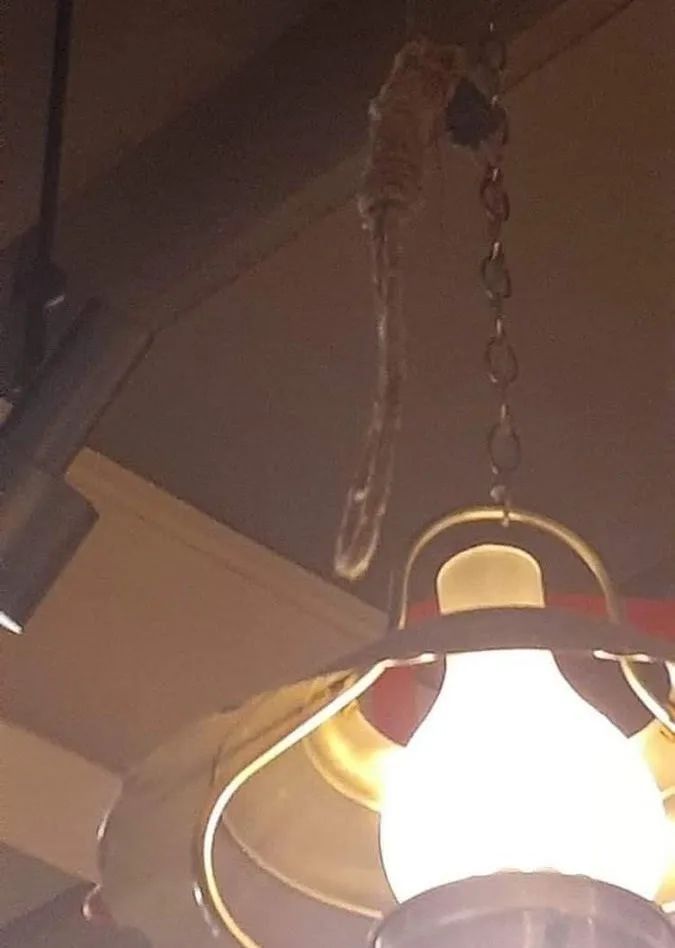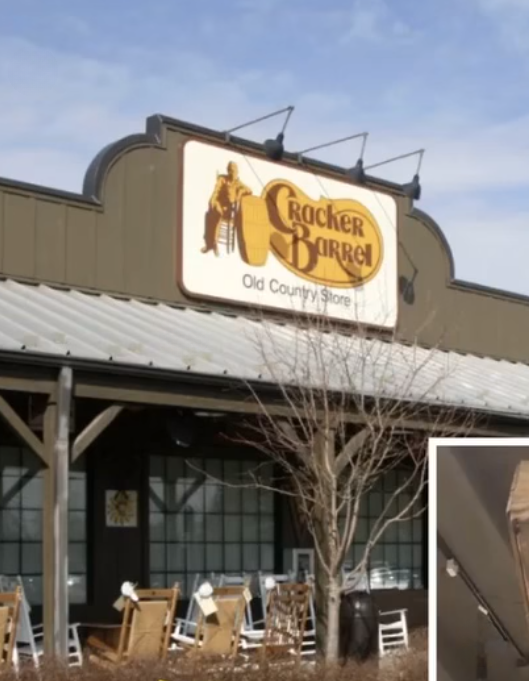In late 2020, a Cracker Barrel restaurant in East Windsor, Connecticut, unexpectedly found itself in the middle of a nationwide conversation about cultural awareness and historical sensitivity. What began as an ordinary dining day turned into a viral moment when a customer noticed unusual ceiling decorations and shared photos online.
The images, posted to Twitter, appeared to show what looked like nooses hanging from the restaurant’s ceiling. Although the intent may not have been malicious, the visual impact was powerful enough to spark intense reactions across social media. Many people expressed shock, anger, and disappointment, urging the company to take immediate action.
The Company’s Immediate Response
Within days, Cracker Barrel issued a public apology and offered an explanation. According to the restaurant, the cords in question were actually part of an antique soldering iron display — a piece that had been hanging in the same spot for more than 22 years. However, company representatives admitted that they “should have recognized the resemblance” earlier and acted before it became an issue.
The decorative item was removed from the restaurant as soon as concerns were raised, but by that point, the story had already spread nationwide.
A Conversation With the Community
In an effort to address the situation locally, store manager Mark Smith met with community activists to discuss the matter face-to-face. Describing the meeting as “positive,” Smith acknowledged that people can view the same object in very different ways, and that he personally might not have noticed what others saw. Still, he recognized the importance of listening to public concerns and learning from them.
Reevaluating Décor Policies Across All Locations
Following the incident, Cracker Barrel made a public commitment to review its décor standards in all its restaurants. The company stressed that it strives to create a respectful and inclusive dining environment and that it would take steps to ensure that vintage or historical items on display are carefully vetted to avoid unintended offense.
Many social media users have since called for the brand to conduct a full décor audit across its nationwide chain, ensuring that all locations reflect the company’s stated values of inclusivity and respect.
Why This Story Still Matters Today
While the East Windsor incident happened years ago, it continues to serve as an example of how businesses must adapt to evolving cultural expectations. In a world where images can go viral in seconds, even long-standing decorations or traditions can suddenly take on new meanings.
For companies, this is more than a public relations lesson — it’s a reminder that every element of a customer’s experience sends a message. Whether intentional or not, certain displays can evoke historical trauma or trigger emotional responses that affect how a brand is perceived.
By addressing the issue, engaging with the community, and reevaluating its policies, Cracker Barrel demonstrated the importance of accountability in modern business. The challenge now lies in ensuring that these changes are not just reactive measures, but part of an ongoing commitment to cultural sensitivity and customer respect.

